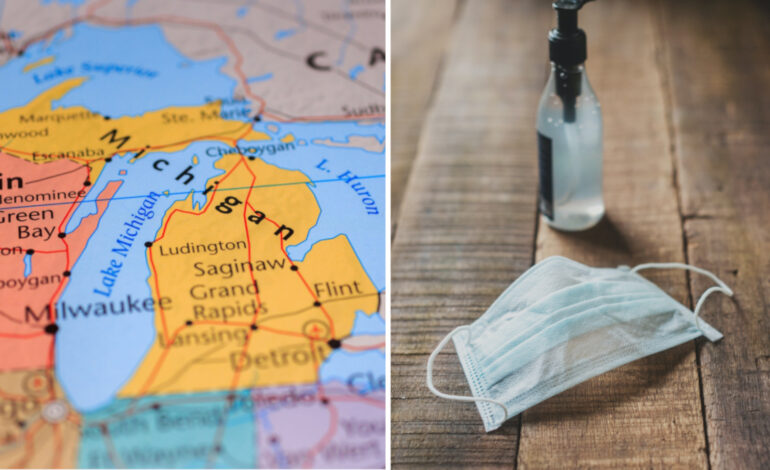LANSING — Michigan main health authority has stepped into the ring, now that the state’s Supreme Court has deemed all of Governor Whitmer’s COVID-19 related executive orders since the April extension of the state of emergency unconstitutional.
Michigan Department of Health and Human Services (MDHHS) Director Robert Gordon has issued an emergency order restricting gathering sizes, requiring face coverings in public spaces and placing limitations on bars and other venues.
Monday’s order reinstates virtually all of the main restrictions and requirements on activity in Whitmer’s previous executive orders. The MDHHS order is in place from now till the end of the month. The order relies on authorities that were first enacted after the Spanish Flu of 1918 and that were not at issue in the Supreme Court decision.
The law, MCL 333.2253, says if state’s health director decides a epidemic needs to be controlled in the interest of public health, they may issue an emergency order that prohibits the gathering of people for any purpose and may establish procedures to be followed during that epidemic.
The MDHHS says violations of the order are punishable by prison time, of not more than six months, or a fine of not more than $200, or both. Violations of this order are also punishable by a civil fine of fine of up to $1,000.
The order also effects athletes. Athletes training or practicing for or competing in an organized sport must wear a facial covering, except when swimming, or consistently maintain six feet of social distance.
“The epidemic order that Director Gordon issued today is an important step to protect Michiganders across the state from the spread of COVID-19,” Whitmer said. “Let’s all mask up and stay safe.”
Under separate Michigan laws, local health departments are authorized to carry out and enforce the terms of this order, as are law enforcement agencies. Wayne County Executive Warren Evans said his county is ready to comply with the order as required.
“We know social distancing and properly wearing a face mask are among the most effective ways to control the spread of COVID-19. The new orders will continue these life-saving public health measures. Our goal has been and continues to be providing the safest possible environment in which to live, learn and work for our residents and visitors.”
The MDHHS order reinforces three major restrictions from Whitmer’s previous executive orders:
— Requirements to wear masks at indoor and outdoor gatherings. The order requires individuals to wear masks when in gatherings, defined as any occurrence where persons from multiple households are present in a shared space in a group of two or more, and requires businesses and government offices to enforce those requirements for gatherings on their premises. The order also requires the wearing of masks at schools, except for in Michigan Economic Recovery Council Region 6.
— Limitations on the size of gatherings. The order reinstates limitations on gathering sizes that mirror the requirements that Whitmer had previously put in place. These include indoor gatherings of more than 10 and up to 500 people occurring at a non-residential venue are permitted within the following limits:
-
- In venues with fixed seating, limit attendance to 20 percent of normal capacity. However, gatherings up to 25 percent of normal capacity are permitted in Michigan Economic Recovery Council Region 6.
- In venues without fixed seating, limit attendance to 20 persons per 1,000 square feet in each occupied room. However, gatherings of up to 25 persons per 1,000 square feet are permitted in Michigan Economic Recovery Council Region 6.
- Non-residential outdoor gatherings of between 100 and 1,000 persons at venues with fixed seating are permitted at up to 30 percent of normal capacity and at 30 persons per 1,000 square feet at venues without fixed seating.
— Limitations on certain establishments. Although the order does not close bars, it requires them to close indoor common areas where people can congregate, dance or otherwise mingle. Indoor gatherings are prohibited anywhere alcoholic beverages are sold except for table services where parties are separated from one another by at least six feet.






Leave a Reply